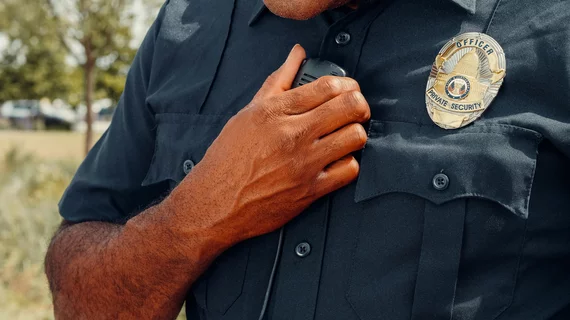What is your state doing to protect healthcare workers who are potentially in harm’s way every day?
In the absence of federal laws to address violence against healthcare workers, most state legislatures have taken up the cause on their own.
A paper published in JAMA takes a look at which states are doing what to thwart or oppose patients and visitors who would harm nurses and other care professionals.
To place the state-by-state statuses in context, the paper’s authors cite research showing healthcare workers account for close to three-quarters for all nonfatal workplace injuries—and are five times more likely to suffer workplace violence than workers in other fields.
What’s more, recent data shows incidents are trending sharply upward.
Corresponding author I. Glenn Cohen, JD, of Harvard Law School and co-authors cite a national nurse survey showing a 119% surge in the occurrence rate between March 2021 and March 2022. They suggest the spike is only a snapshot of “a broader trend of rising violence against healthcare workers over the last decade.”
Before listing individual states by what sorts of actions they’ve taken or are discussing, Cohen and colleagues acknowledge the skepticism that healthcare workers often express, post-incident, over any kind of lasting anti-violence measures “in the face of the costs involved.”
Still, they write, many healthcare leaders have endorsed improving workplace standards and strengthening criminal law deterrence. Besides:
“State legislative actions remain critical to addressing the crisis facing healthcare professionals, especially considering the lack of congressional action.”
Here are the states, broken into three categories:
1. States with established laws or pending bills to increase criminal penalties for violence committed or threatened against healthcare workers. These laws commonly treat an assault against a healthcare worker as its own misdemeanor or felony, “thereby heightening the classification compared with other types of assault,” the authors note.
- Alabama
- Alaska
- Arkansas
- Colorado
- Delaware
- Florida
- Hawaii
- Idaho
- Indiana
- Iowa
- Kansas
- Kentucky
- Louisiana
- Massachusetts
- Michigan
- Mississippi
- Montana
- Nebraska
- New Mexico
- North Dakota
- Ohio
- Oklahoma
- Pennsylvania
- South Dakota
- Tennessee
- Utah
- Vermont
- West Virginia
- Wisconsin
2. States enforcing or considering laws that require or enable healthcare facilities to enhance worker protections. In these states, hospitals are generally allowed to “implement certain safety requirements or permit health workplaces to exercise more force against violence.”
- Maryland
- New Hampshire
- Oregon
3. States with both the above types of laws on the books or in the works:
- Arizona
- California
- Connecticut
- Georgia
- Illinois
- Maine
- Minnesota
- Missouri
- Nevada
- New Jersey
- New York
- North Carolina
- Rhode Island
- Texas
- Virginia
- Washington
In addition, at least 29 states have passed or are trying to enact laws that allow healthcare facilities to establish independent police forces, Cohen and co-authors report.
“Designating hospital security personnel as an independent police force empowers members of the force to carry firearms and make arrests,” they write. “It also requires members to meet training requirements that make them a certified officer of the law, a higher bar than what is required of typical security guards.”
More:
“One can only hope that state-level experimentation with laws to solve the in-hospital violence issues may one day constitute a blueprint for a federal law that could apply to all of the nation’s hospital systems that are receiving federal funding.”
The paper is available in full for free.

